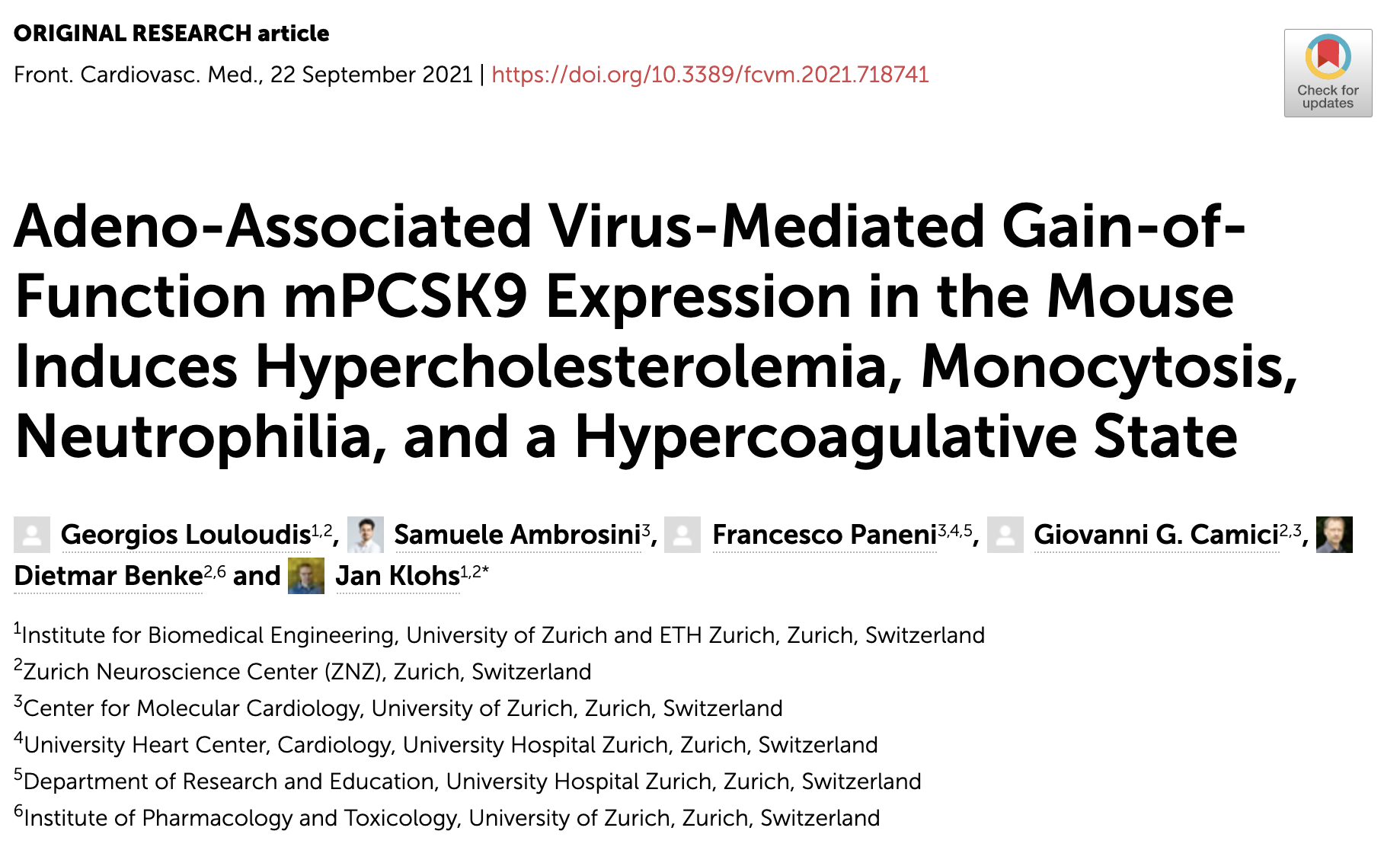Novel murine model of hypercholesterolemia

An outstanding collaboration between Samuele Ambrosini from our center and the ETH Zurich has led to the development of a new mouse model of hypercholesterolemia by using adeno-associated virus-mediated gain-of-function of mPCSK9! Indeed, despite its physiological function, excessive cholesterol levels are a major risk factor for cardiovascular and cerebrovascular diseases, and is thus associated with high mortality and morbidity. High lipoprotein blood levels promote atherosclerosis, which involves plaque formation in arteries by inflammation, lipid accumulation, cell death, and fibrosis. Clinical complications of atherosclerosis can arise from plaques causing stenosis or follow the rupture or erosion of a plaque, which exposes subendothelial pro-thrombotic material (e.g., tissue factor) thereby promoting atherothrombosis. The development of this new mouse model may help to better characterise the role of thromboinflammatory processes in the pathogenesis of cardiovascular and cerebrovascular diseases.